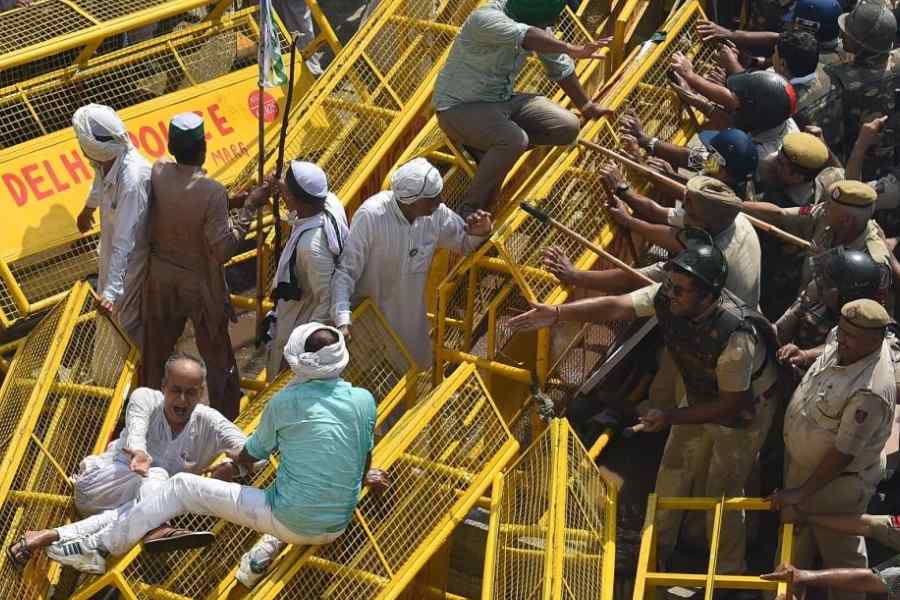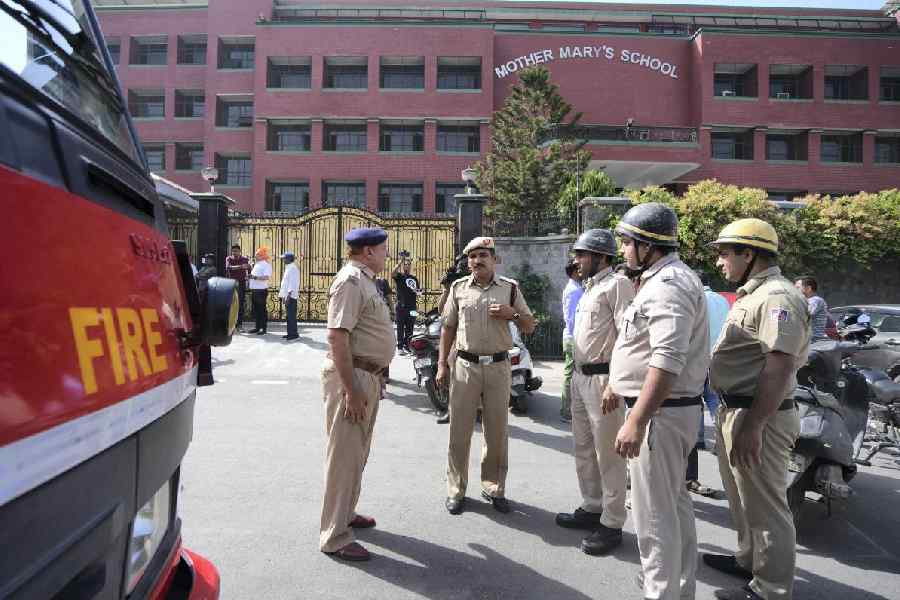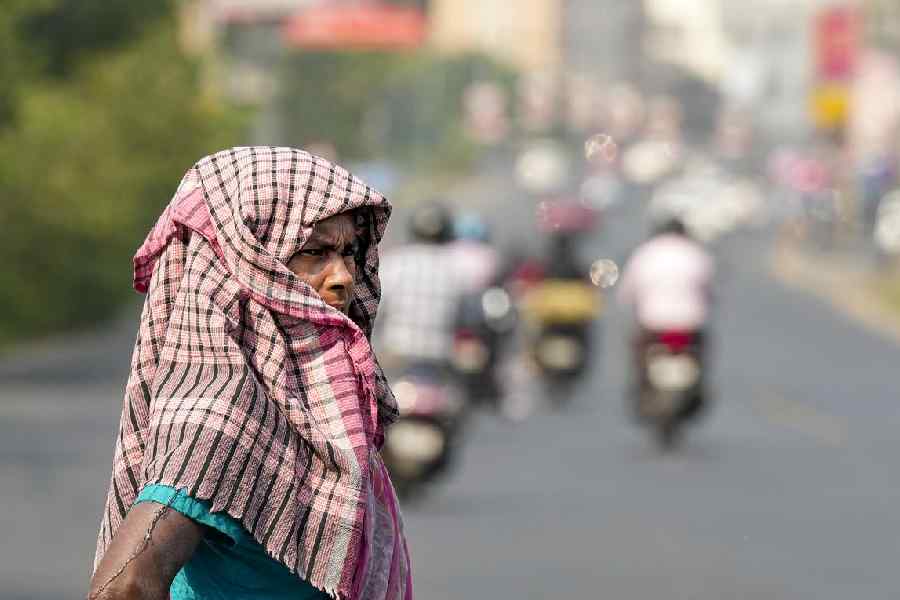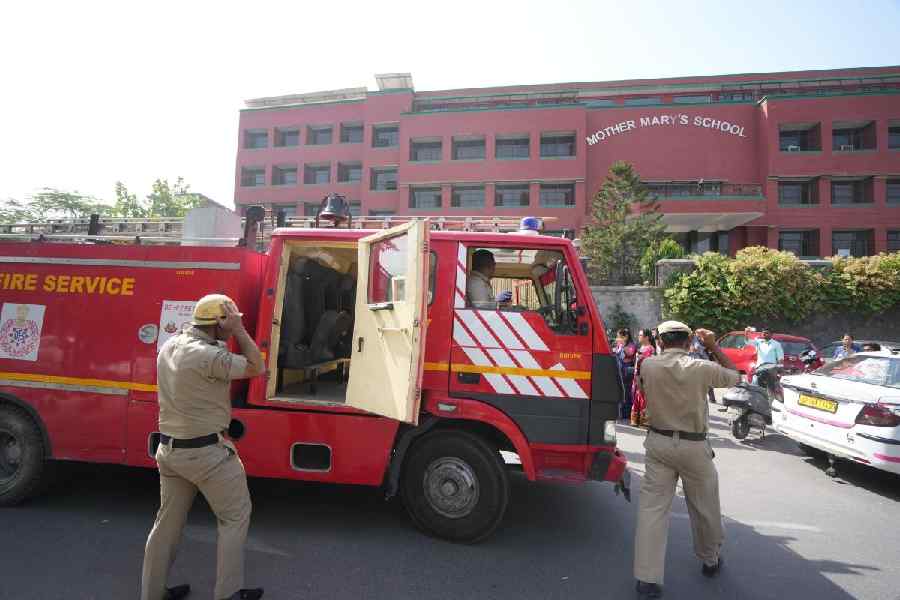BODY ON THE BARRICADES: LIFE, ART AND RESISTANCE IN CONTEMPORARY INDIA
By Brahma Prakash
LeftWord, Rs 325
This book contains a set of eight critical musings on the curtailment of bodily freedoms in India during and after the pandemic. The topics range from situations of asphyxiating, extreme breathlessness (both corporeal and realpolitikal, as encountered by the broken bodies of pardesi migrant labourers during the 2020 ‘lockdown’), to the barricading of Shaheen Bagh protesters and the marching farmers, the ban on public grieving in Kashmir and Hathras, and the apathy and indignity surrounding the ‘disposal’ of the Covid-dead. All of these events, Brahma Prakash insists, were confabulated and vilified through unrelenting arrogance, spiteful media apparatuses and toxic hate-mongering characterising a “dying democracy”.
The writing is polemical, hard-hitting and, at times, visceral. Prakash introduces defamiliarised landscapes of resilience and resistance in these essays, interspersing them with literary anecdotes and poems, alongside a continuing interrogation of his political conscience, exploratory readings as an academic, and his being-in-the-world. After the memories of the “dance of death” and the great tragedy of the migrant exodus ebbed from the urban consciousness, some analysts tried to re-conceptualise the disintegrating Indian village as “an enduring space from an ideal past” — a throwback to Gandhian gram-swaraj for some; for others, a re-imagined zone of compassion in the migrants’ minds as opposed to the uncaring metropolises and cities. These are views that Prakash vehemently opposes: “The love of the Indian intellectual for ‘the village’ is nothing but love for the genealogy of their feudal-savarna caste lineage... A life sentence is not a life, and fugitives cannot be nostalgic.” Here, he draws largely from the thought of B.R. Ambedkar. He also reminds his urban readers that, in the hinterlands of Bihar, some words carry nuanced signification: “(b)oth the migrant and the dead undertake the arduous journey to pardes —the unseen, alien land.”
In an essay on the rise of political demagoguery in India, probably the most powerful of the essays compiled here, Prakash refers to the symbolic veneration of the ‘word’ by the Bhaktis and the Sufis. A word is dhvani, vachana and pramana; it is also zameer, mool, naad, nama, kalma, bol and shabda — it speaks through an intricate web of meanings. The rise in hate crimes in the Republic of India is symptomatic of a deeper social malaise involving the purposeful disfigurement of words, and their insular use as instruments of hate by demagogues: “Before they lynch the body, they lynch words... words lose their capacity to heal or mourn.”
Barricades collapse. Bodies and republics disintegrate over time. The once mighty survive through words alone. In the era of the final collapse of the republic in Rome, in 63 BCE, the great republican politician, Cicero, was said to have celebrated his election to the post of Consul with a particularly bad, self-eulogistic poem, “On His Own Consulship”. Within three years, and unbeknownst to most republicans, a triumvirate of Julius Caesar, the general, Pompey, and Crassus (the suppressor of the slave rebellion led by Spartacus nine years earlier and, not coincidentally, then the richest businessman in Rome) seized power; worse was to follow. What exactly caused the republic to collapse is a subject best left to professional historians, but thanks to the Roman poet, Juvenal, who quoted politicians with derisive mirth, few words from Cicero’s unfortunate poem made it through the last two thousand years. In translation, they read as follows: “O happy fate for the Roman state/ Was the date of my great consulate!”
These words (and, hopefully, the Othered words and disturbing memories shaping this book) will keep reminding us that, as with the dead vain Romans, fame is not exactly the legacy futurity holds for the demagogues of today.










